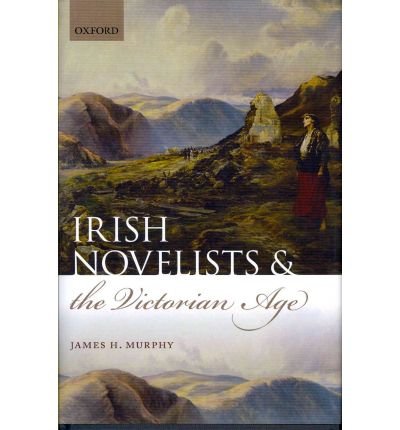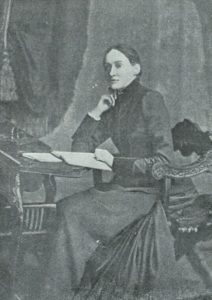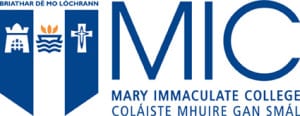Research Pioneers 3: James H. Murphy
From the period of his earliest publications, James H. Murphy has been involved in the process of recovering and re-examining largely forgotten Irish works. As one reviewer noted of his Catholic Fiction and Social Reality in Ireland, 1873-1922 (1997), Murphy’s work is consistently the ‘product of considerable and careful research’ into ‘texts many of us never heard of’. Likewise, as another reviewer asserted about his 2011 Irish Novelists and the Victorian Age, Murphy’s intensive research into and surveys of novels by the ‘many forgotten authors’ of that era have been key to the invigoration of research into Irish women’s literary texts. We ask Murphy to reflect on his influential research and recovery efforts here.
This is the third interview in the Research Pioneer Series. Our first interview with John Wilson Foster is available here and our second with Heather Ingman and Clíona Ó Gallchoir is here.
Q: What first drew you to study what reviewers of your work consistently refer to as ‘niche’ or ‘forgotten’ Irish literary works?

I have never been drawn to ‘forgotten’ works per se. I am both a literary scholar of fiction and a conventional historian. Because of the perspective the latter has given me, it always concerned me that literary studies very often focused on a limited canon as a locus for cultural debate, whereas very large numbers of novels were written at the time. I felt that if one was doing literary history one had an obligation to broaden greatly the catch of works one was dealing with. My approach therefore is a sociological one, in the very loosest sense of the word. That’s why my books generally deal with several hundred novels at a time. Obviously, most of these fall into the ‘forgotten’ category from our present point of view.
Q: How did you locate and access the materials for your research?
I started in the age before the internet so I consulted the standard, multi-volume printed catalogues. More recently I have used online resources such as WorldCat.
Q: Can you recall a particular ‘Eureka moment’ from the archives?
Not, as such. My work tends to be cumulative so patterns emerge from sifting a lot of material.
Q: Can you offer any insight into how we might account for the number of women authors you unearthed in your research into Irish novels of the late nineteenth/early twentieth century era?
I didn’t find it surprising. Writing was one of the career areas open to women in the nineteenth-century. Working as an author was by no means easy. The files of the Royal Literary Fund, a charity to which struggling writers applied for aid, give evidence of often courageous writers working in difficult circumstances.
Q: Your research often deals with themes of gender and sexuality. In an era in which the concept of gender is consistently being held up for scrutiny and notions of sex and sexuality are being challenged and redefined, what advice might you offer to researchers of Irish women’s writing?
Work inductively, not deductively. See what is there in the evidence and build up a picture of how things must have seemed at the time in all their complexity and contradiction. Sometimes there is a danger of imposing our present categories on the past in ways that end up as not being very interesting.
Q: Do you feel that women’s texts have tended to be overlooked or even willfully excluded from the grand narrative of the Irish novel?
Blame it on the Irish Literary Revival! Before the Revival Irish women writers got a lot of credit and encouragement, particularly from publications such as the Catholic literary magazine, the Irish Monthly. And almost half the writers anthologised in Read and Hinkson’s four volume, Cabinet of Irish Literature.
Q: Are there any particular unresolved questions about Irish women writers you’d like to see being answered?

My own work has mostly been focused on the texts themselves. Few writers left substantial archives. To my regret Rosa Mulholland, on whom I have spent quite a lot of time, has left very little. Nonetheless, exploring the area of professional and literary connection between writers is an important area. Binckes and Laing’s Hannah Lynch is therefore an important step forward in this area. I hope that further such work will follow.
Q: What book, play or poem/poetry collection written by an Irish woman between 1880 and 1920 do you feel deserves more attention and respect, and why?
I know that many people feel that Somerville and Ross’s The Real Charlotte is a wonderful novel and I agree. However, I would also rank Emily Lawless’s Grania very highly. It is at least an attempt to try to understand the experience of a woman from a very different background – island-based and Gaelic – from that of the author and reader. It is a deeply compassionate work.
To reference this blog:
Harvard style:
Murphy, James H (2019), ‘Research Pioneers’, Interviewed by Anna Pilz and Whitney Standlee for Irish Women’s Writing (1880-1920) Network, (December, 2019). Available at: https://irishwomenswritingnetwork.com/2019/12/10/research-pioneers-3-james-h-murphy/(Accessed: Date)



